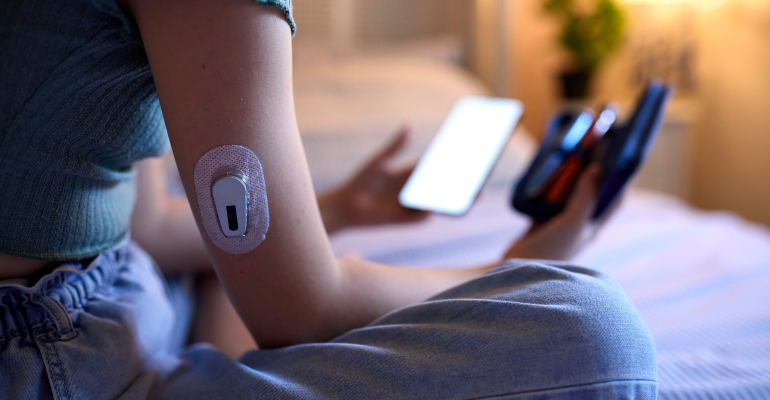As one of the most common chronic diseases worldwide, diabetes affects millions of people globally, according to the World Health Organization. However, thanks to the rapid advancement of technology, there has been a rise in the development of diabetic technology or “diabetic tech” that can help patients better manage their condition and improve their quality of life.
Managing diabetes requires a combination of lifestyle changes, medication management, and regular monitoring. One of the most significant advancements in diabetic tech is continuous glucose monitoring (CGM) devices. These devices monitor patients' glucose levels in real-time and alert them when they are too high or too low. This technology allows patients to monitor their glucose levels more accurately and adjust their diet or medication as needed, according to a study titled: Diabetes digital app technology: benefits, challenges, and recommendations.
Another advancement in diabetic tech is insulin pumps. These devices deliver insulin continuously and eliminate the need for multiple daily injections. Insulin pumps allow patients to better manage their glucose levels, especially during physical activity or when sleeping, as that is when glucose levels fluctuate.
To tackle this chronic condition, Innovation Zed, an Irish R&D company specialising in designing, developing, and manufacturing medical devices, recently formed a strategic partnership with Dubai’s GluCare.Health, to launch a metabolic disease management platform.
Under the InsulCheck brand, Innovation Zed offers a range of intelligent add-on devices that connect to a dedicated app. These devices facilitate automatic logging and secure storage of crucial information related to injection history, specifically designed for Multiple Daily Injection (MDI) users. This integration can support platforms such as GluCare.Health to continuously monitor and manage insulin-dependent patients with greater precision.
Real-time updates on insulin doses and timings enable healthcare professionals to gain insights into patients' insulin information in conjunction with glucose and other relevant data parameters. This approach provides a comprehensive overview of the patient's health status and requirements, leading to more informed and personalised care.
Improving patient outcomes
Telemedicine and telemonitoring are also changing the landscape of diabetes care. Patients can now monitor their glucose levels and communicate with healthcare providers remotely, reducing the need for in-person visits. This technology can also provide real-time data to healthcare providers, allowing them to make more informed decisions about patient care.
Diabetic tech is not just changing patient care but also transforming the way hospitals work. Hospital systems are beginning to integrate diabetic tech into their electronic health records (EHRs) to improve patient outcomes and streamline workflows. EHRs that include diabetic tech data can provide a complete picture of a patient's health, allowing for personalised care and treatment plans.
One example of this is the use of artificial intelligence (AI) in diabetic care. AI algorithms can analyse vast amounts of data, including patient data from diabetic tech devices, to identify patterns and provide personalised treatment recommendations. This technology can potentially improve patient outcomes and reduce healthcare costs by identifying high-risk patients before they require hospitalisation.
Furthermore, the use of diabetic tech has the potential to improve patient education and self-management. Apps and other digital tools can provide patients with personalised education and support, helping them better understand and manage their condition. This technology can also help patients track their progress and set goals for improved diabetes management.
In conclusion, diabetic tech has the potential to revolutionise the way patients manage their diabetes and how healthcare providers deliver care. With continuous technological advancements, diabetic tech will continue to improve patient outcomes, reduce healthcare costs, and transform the industry. As healthcare systems continue to integrate diabetic tech into their workflows, patients will have access to more personalised care, better education, and more advanced treatments.
Back to Technology References https://www.who.int/news-room/fact-sheets/detail/diabetes https://www.diabeteseducator.org/research/adces-diabetes-technology-focused-research https://www.ncbi.nlm.nih.gov/pmc/articles/PMC9197631/ https://pubmed.ncbi.nlm.nih.gov/31802144/ https://www.aafp.org/pubs/afp/issues/2022/0300/p281.html https://www.ncbi.nlm.nih.gov/pmc/articles/PMC6610600/ https://pubmed.ncbi.nlm.nih.gov/32325045/ https://www.ncbi.nlm.nih.gov/pmc/articles/PMC6139833/

